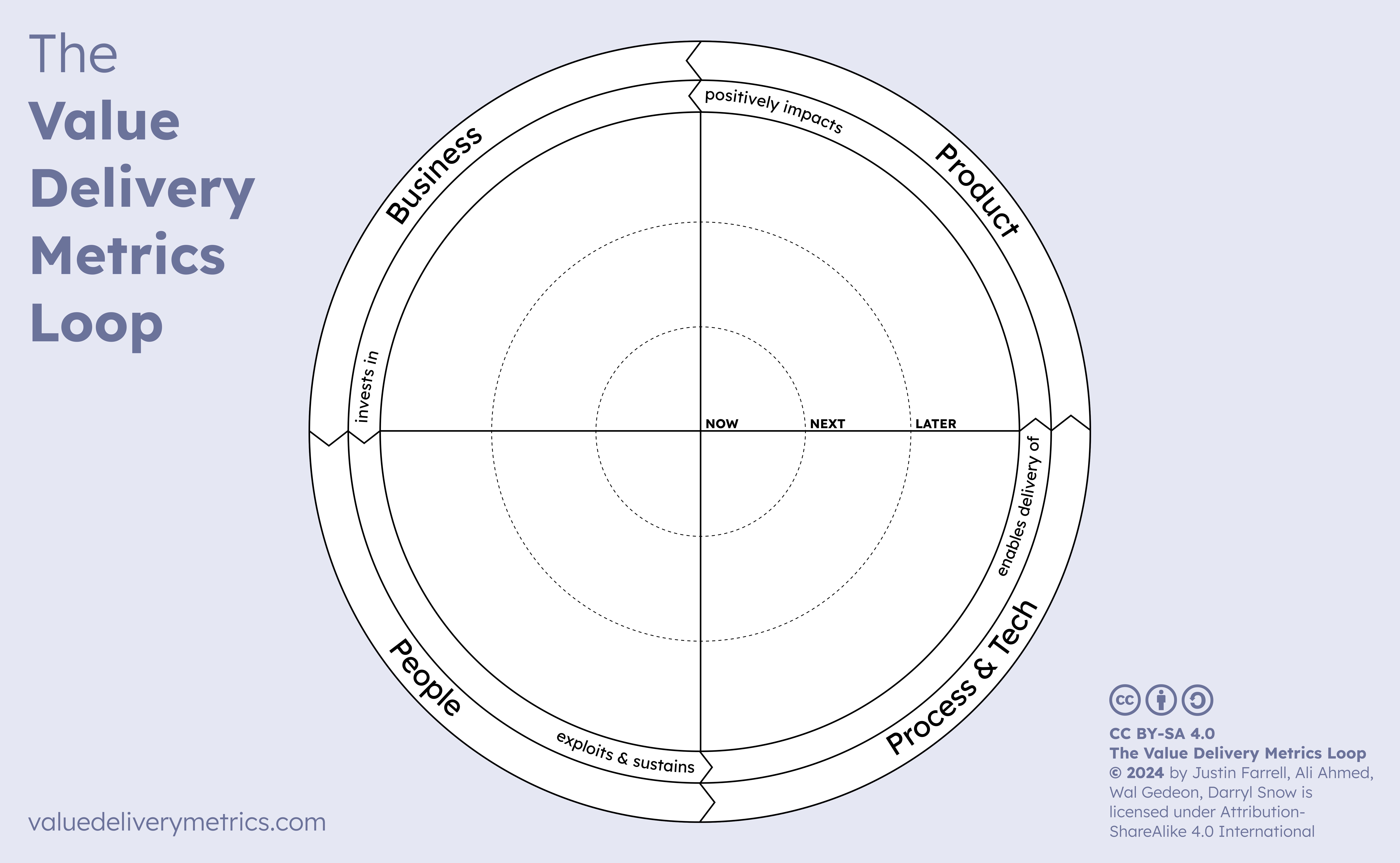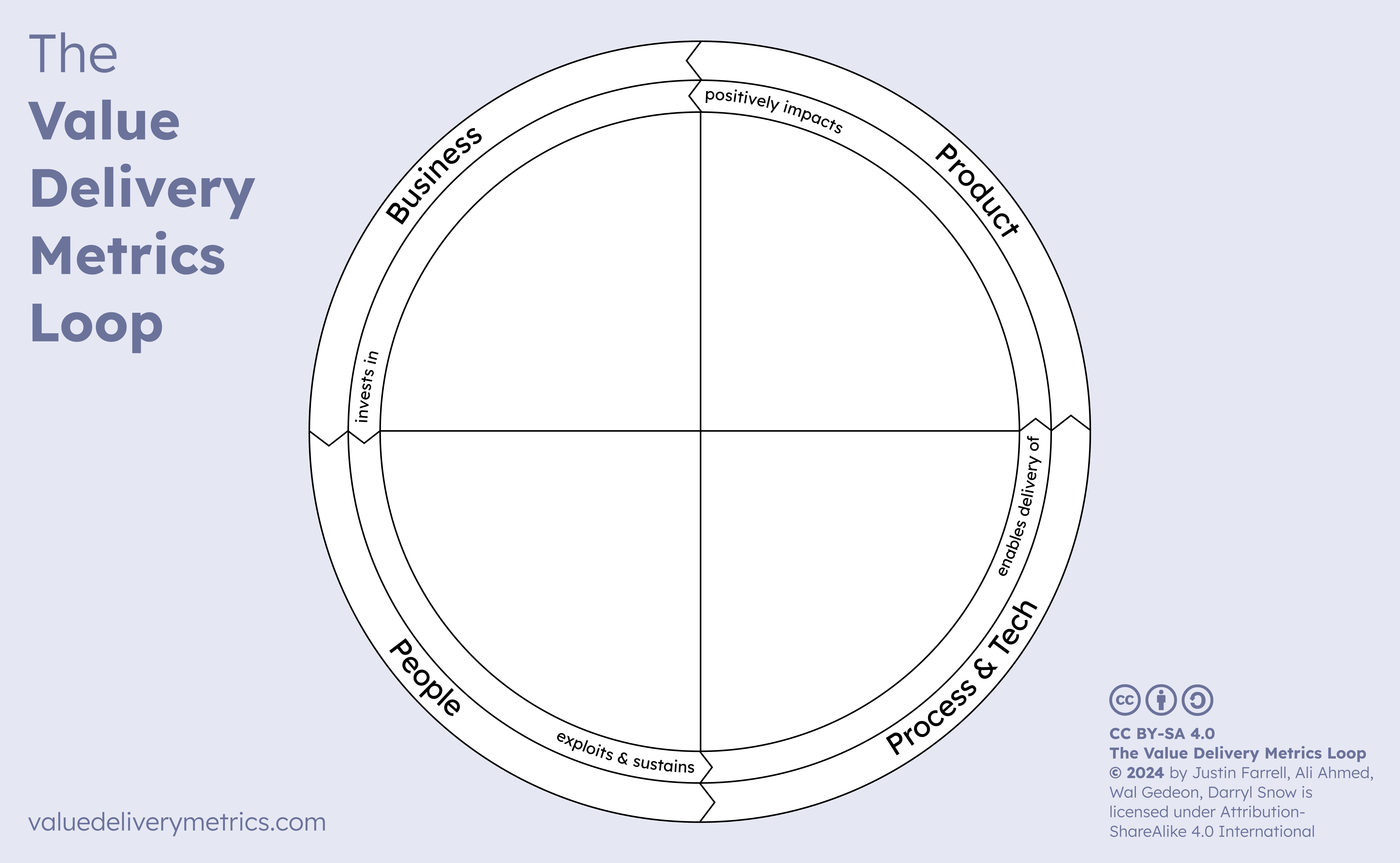The
Value
Delivery
Metrics
Loop
Download
The Value Delivery Metrics Loop is a tool for helping software teams ideate, rationalize, and prioritize which metrics to use at different times so that they can demonstrate their proficiency to sustain value delivery.
Metrics that Matter.
Meaningful metrics help teams and their investors to align on desired outcomes, to get feedback and track progress towards those outcomes, to tell a story, to create a business case, to make decisions, and to know when it's time to move on to the next priority.
Measure the Right Things…
The metrics that teams select should be useful indicators of value delivery at various levels and should be coherent with each other. Those metrics may relate to the business, to their software product, to their delivery processes and tools, or to the team itself.
And Only the Right Things…
There are so many things teams could measure, but with aditional metrics comes increased overhead to gather and analyze data. Teams must prioritize only the specific metrics relevant to their desired outcomes.
…At the Right Time.
The metrics that matter may change as a team grows or is reconfigured, or as the software product expands with more features for new user segments.
Business Metrics
Data that indicate positive impact on the overall business that is investing in people and tools to produce software. For example:
- Incremental revenue
- Operating margin
- Brand image
- Market share
- Customer lifetime value
- Customer acquisition cost
Product Metrics
Data relating to user behavior within our product that serve as leading indicators for positive impact on business metrics. For example:
- Converstion rates
- Retention
- Effort scores
- Transaction volumes
- User feedback
- Referrals
People Metrics
Data relating to the performance of a team that indicate the team's ability to sustain activities to deliver product outcomes. For example:
- Team health score
- Employee satisfaction
- Overtime
- Employee retention
- Training time
- Diversity scores
Process & Tech Metrics
Data relating to the activities being undertaken to deliver product outcomes that may serve as indicators of proficiency to deliver those outcomes. For example:
- Lead time / time to value
- Error / Defect rates
- Latency / loading speeds
- Delivery velocity and volatility
- Downtime / uptime
- Rejection rate




